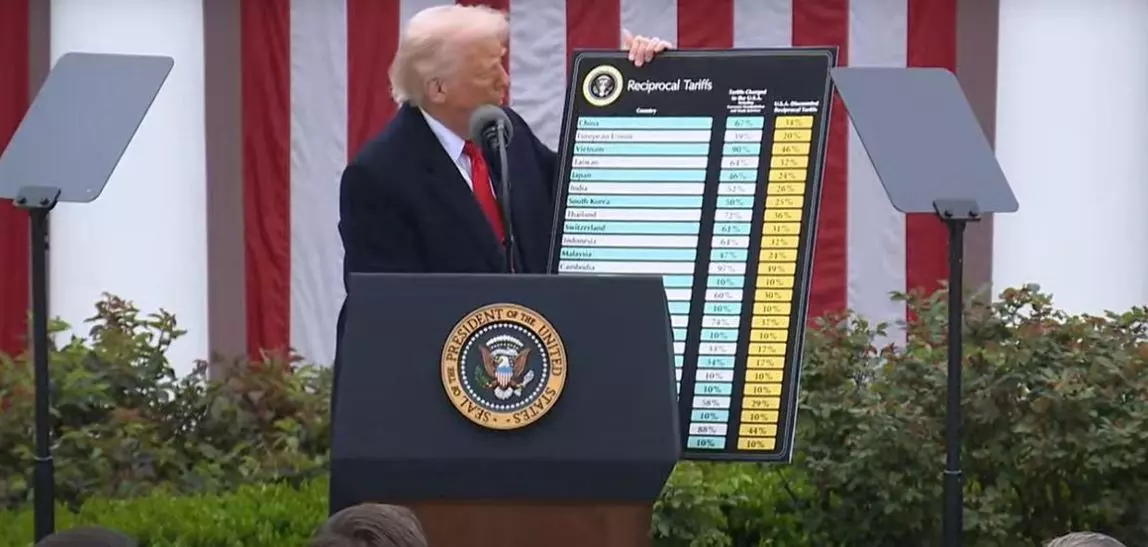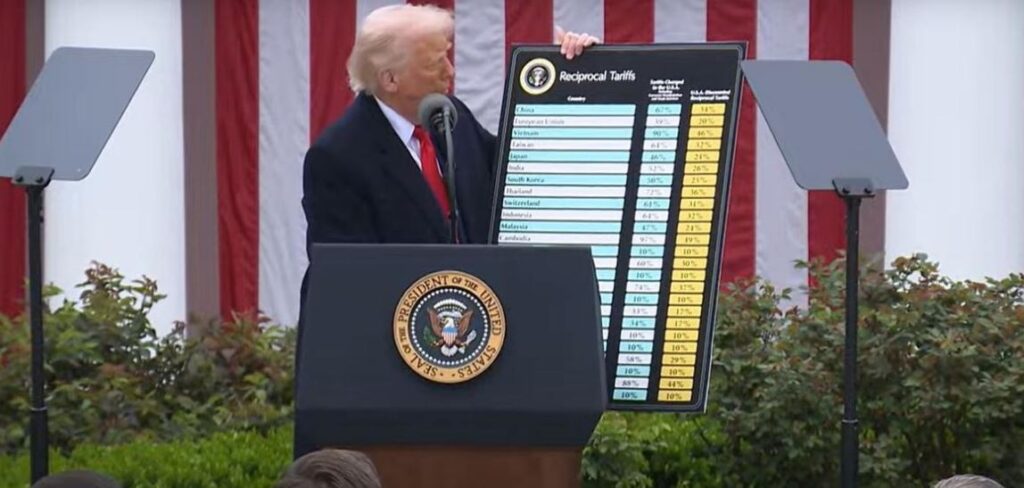
Washington: US President Donald Trump on Wednesday announced a 26 per cent tariff on Indian products and services as part of wider policy to impose sweeping 10 per cent tariffs on all countries to boost manufacturing in his country.
The aggressive rhetoric came as Trump showed a willingness to dismantle a global economic system that the United States helped to build after World War II. Trump held up a chart while speaking, showing the United States would charge a 34% tax on imports from China, a 26 per cent from India, a 20% tax on imports from the European Union, 25% on South Korea, 24% on Japan and 32% on Taiwan.
Cambodia will attract the highest US tariff at 49 per cent, followed by Vietnam at 46 per cent and Sri Lanka at 44 per cent — only three countries in 40-50 per cent bracket.
Bangladesh will have to pay 37 per cent tariff, Thailand 36 per cent, China 34 per cent, Indonesia 32 per cent, Taiwan 32 per cent, Switzerland 31 per cent, and South Africa 30 per cent.
In 20-29 per cent bracket, Pakistan will attract the highest tariff at 29 per cent, followed by India 26 per cent, South Korea 25 per cent, Japan and Malaysia 24 per cent and European Union 20 per cent.
Israel and the Philippines will attract 17 per cent tariff, while the United Kingdom, Australia, Chile, Turkey, Colombia, Brazil, Singapore will attract 10 per cent tariff.
US financial markets have been unsettled in anticipation of Trumps tariff announcement. Trump insists the moves will strengthen the U.S. economy, even as many experts worry it could lead to higher prices for most American consumers.
His advisers say the tariffs will return strategically vital manufacturing capabilities to the United States.
Outside economists have warned that tariffs could slow the global economy, raise the risk of recession, and increase living costs for the average US family by thousands of dollars. Businesses have complained that Trump’s barrage of threats has made it difficult to plan their operations.
Tariff concerns have already slowed manufacturing activity across the globe, while also spurring sales of autos and other imported products as consumers rush to make purchases before prices rise.
Eswar Prasad, a professor of trade policy at Cornell University, called Trump’s tariffs as “an abrupt end” to an era of free and extensive international trade based on a rules-based system built by the United States. “Rather than fixing the rules that many US trading partners admittedly took advantage of to their own benefit, Trump has chosen to blow up the system governing international trade,” he said.

